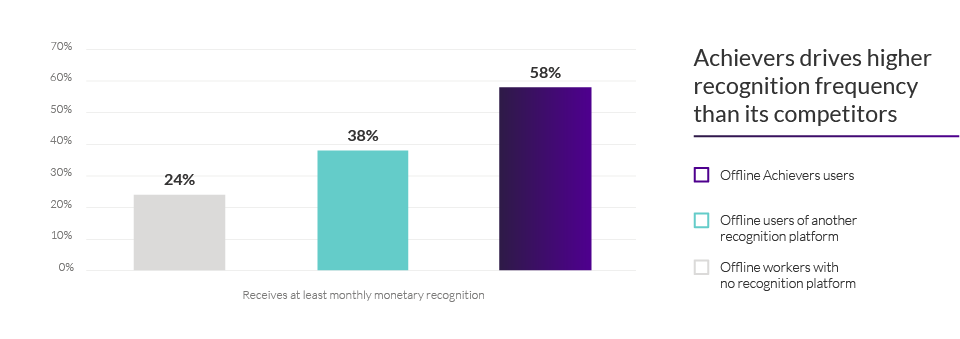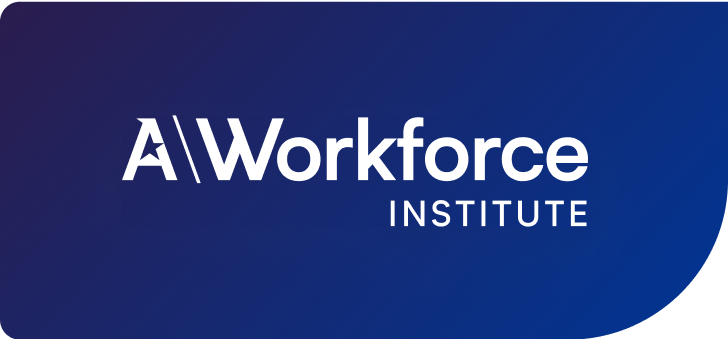HR’s guide to recognition for offline workers
Updated on June 12, 2023

This resource is brought to you by:
Topics Covered:
Frontline and deskless workers
Is your offline workforce feeling left out?
Recognition is often overlooked when it comes to offline workforces, leaving employees in industries like healthcare and manufacturing feeling disconnected and disengaged. Without the right tools for recognition, feedback, and communication, it’s no surprise they struggle with trust and morale. But the solution is simple: Recognition.
A recognition platform designed specifically for your offline workforce can boost engagement, build trust, and improve retention — delivering impressive results that desk-based solutions simply can’t match.
Can a recognition platform boost frequency for offline workers?
The right platform makes all the difference. When recognition is frequent and meaningful, it transforms engagement and helps offline workers feel seen and appreciated.
Offline workers using Achievers are 63% more likely to feel meaningfully recognized at work. In fact, more than half (58%) of Achievers users report receiving monthly monetary recognition, compared to just 38% of those on other platforms.

Ready to uncover the strategies that will drive engagement and retention for your offline workforce? In HR’s guide to recognition for offline workers, we break down how the right recognition platform can create a culture of belonging, increase productivity, and make a real difference.
Unlock the power of recognition for offline teams
Learn how to build a recognition program tailored to the unique needs of offline workers, with insights on the traits and strategies that drive engagement and retention in this often-overlooked group. In this report, you’ll discover:
- The five traits of a high-impact recognition program
- How to drive frequent, meaningful recognition
- The importance of a mobile app for easy, on-the-spot recognition
- Why social recognition is as powerful as monetary rewards
- How to build a culture of recognition with manager training
When recognition is accessible, it transforms engagement and drives real results. Download HR’s guide to recognition for offline workers to unlock the strategies that will make recognition a powerful tool for your offline workforce.

Join our mailing list
Stay up to date with the latest in workforce science from Achievers Workforce Institute.
